Florida Supreme Court rejected Louis Gaskin’s requests for relief, paving the way for his execution. The state will execute Gaskin by lethal injection next Wednesday unless the U.S. Supreme Court intervenes.
We covered Gaskin’s arguments in Monday’s post. The court found his mitigation and Hurst arguments to be procedurally barred, and did not agree with Gaskin’s argument that he can overcome the procedural hurdle because of “manifest injustice.” Here’s how the court handled the argument:
The court also rejected his Lackey claim (three decades on death row constitutes cruel and unusual punishment), citing the February decision in Dillbeck.
Not touching Hurst retroactivity
As to Gaskin’s argument that the FSC’s retroactive application of Hurst violates the Equal Protection Clause, the court held that the jury’s unanimous guilty verdicts in the two murders and “multiple other felonies” established “one or more aggravating factors beyond a reasonable doubt.” So he’s not entitled to relief under Hurst regardless of whether Hurst applies to him under the retroactivity caselaw.
This is based on the court’s decision in Poole, which receded from the Hurst opinion released after the U.S. Supreme Court’s decision in Hurst v. Florida. (For more background on Hurst, Melanie Kalmanson’s Tracking Florida’s Death Penalty has a series on Hurst.)
In Poole, the court held that the jury’s recommendation need not be unanimous because the U.S. Supreme Court only required unanimity on the existence of aggravating factors in Hurst v. Florida. The Poole majority held that the court previously went beyond the requirements of Hurst v. Florida and that a unanimous jury recommendation is not constitutionally required, though the legislature is free to require unanimity.1
For Gaskin, the aggravators included other violent felonies and that the murders occurred during the course of felonies (armed robbery and burglary). Because of this, the court didn’t even need to reach his argument about the retroactive application of Hurst. Even if Hurst applied retroactively, Gaskin wouldn’t prevail.
So when the court got to Gaskin’s Equal Protection argument, the court made quick work:
We pointed out on Monday that the court hasn’t issued an opinion fully articulating why an Equal Protection argument fails. The court rejected the argument without much analysis in Hitchcock, where it pointed to Asay, which didn’t consider Equal Protection in the retroactivity analysis. And then later opinions, such as Lambrix, rely on Hitchcock without much explanation. The court declined an elaborate Equal Protection analysis again on Thursday.
After Poole, and now Gaskin, it seems that the only cases in a position to challenge Hurst retroactivity are cases without “other felony” aggravators. So if a jury’s death recommendation wasn’t unanimous and the state only relied upon CCP (cold, calculated, and premeditated) or HAC (heinous, atrocious, or cruel) without other felony convictions, then there’s an argument that the jury didn’t find an aggravating factor unanimously, triggering Hurst. Short of that, Poole will prevent relief and the court won’t reach the retroactivity question.
Habeas denied
In rejecting Gaskin’s habeas claim, which attacked the “wicked, evil, atrocious, or cruel” aggravator, the court relied on its prior ruling that any error was harmless as to the murder of Georgette Sturmfels. The court also found any error was harmless as to the Robert Sturmfels murder, but got there acknowledging that its previous cases didn’t quite rule on the issue:
The court pointed to the existence of “substantial aggravation in this case” in holding that any error concerning the vagueness of the WEAC/HAC aggravator was harmless.
Heading to Washington
Gaskin’s last chance is at SCOTUS. His lawyers have already(!) filed a petition for certiorari and application for stay of execution. The state will likely respond Friday or Monday. After the state files, we’ll post a summary of the arguments.
Then-Justice Lawson pointed out in his Poole concurring opinion that the statutes passed after Hurst require jury unanimity and:
“If the Florida Legislature considers changing section 921.141 to eliminate the requirement for a unanimous jury recommendation before a sentence of death can be imposed, the fact that this legislative change would make Florida an ‘outlier’ will surely be considered in the ensuing political debate.”
That debate is happening now.




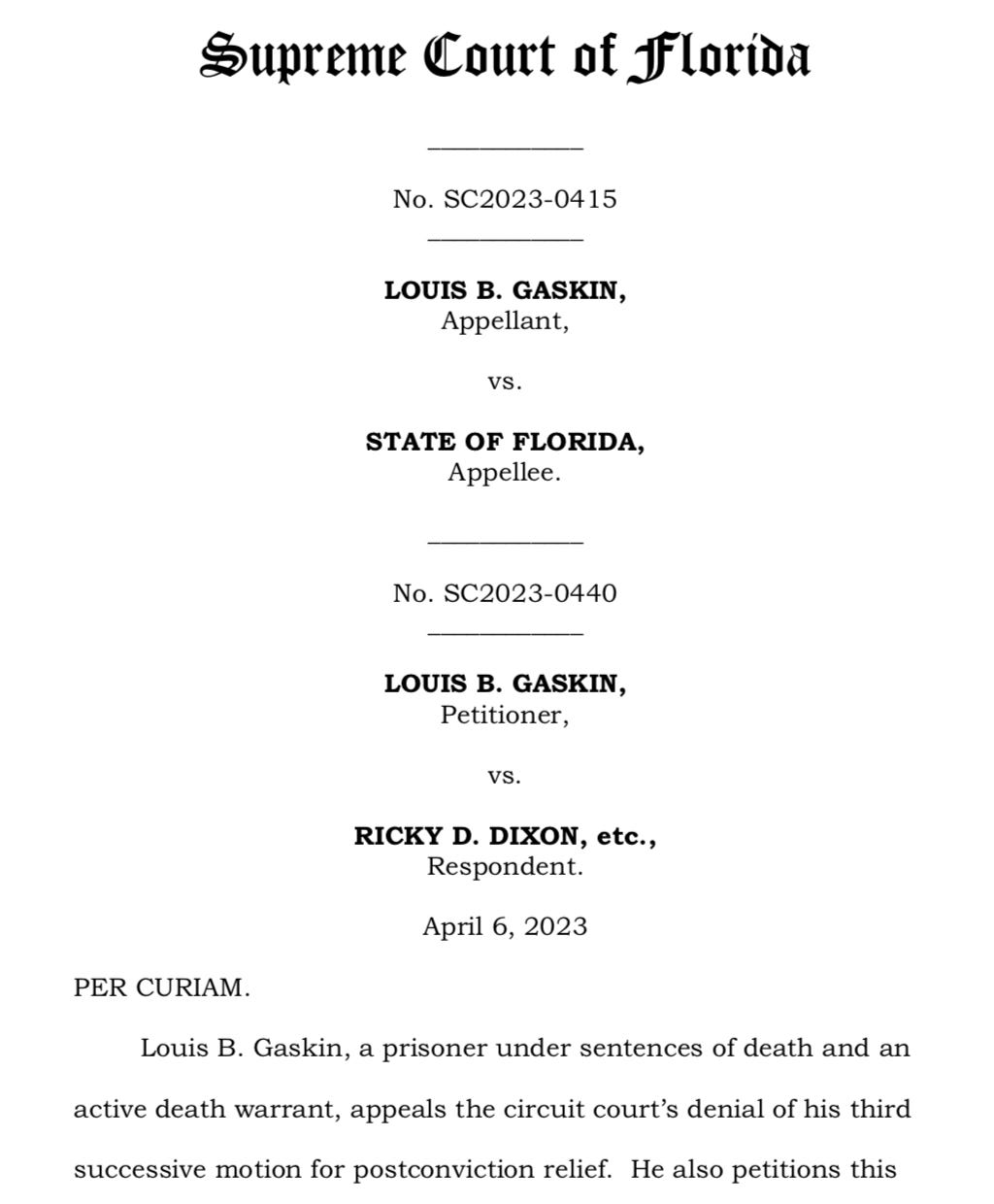
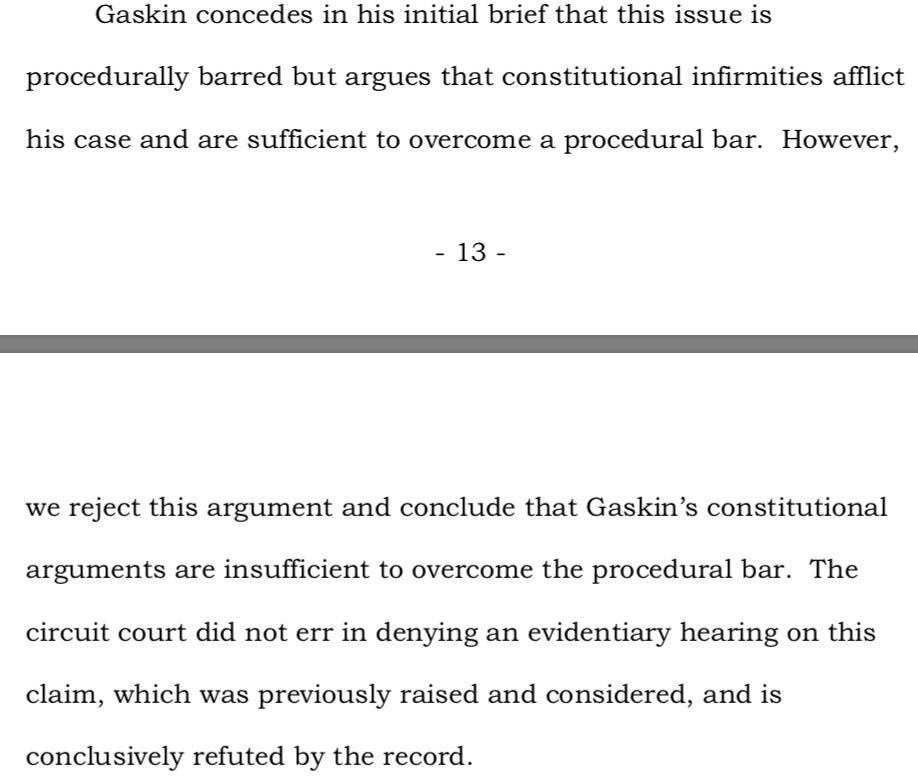
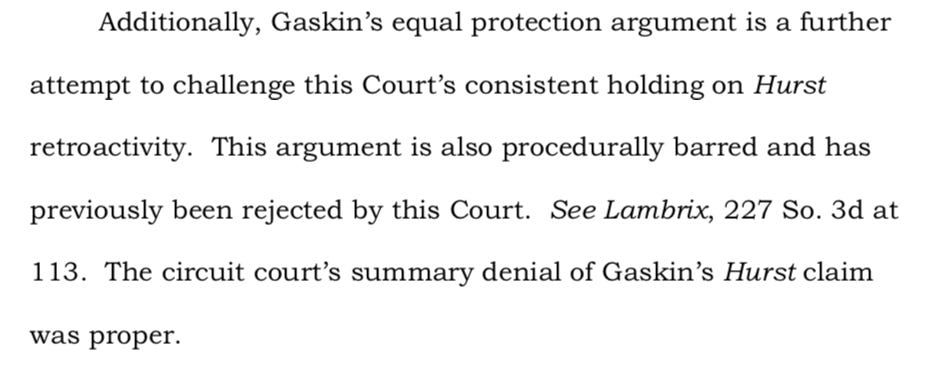
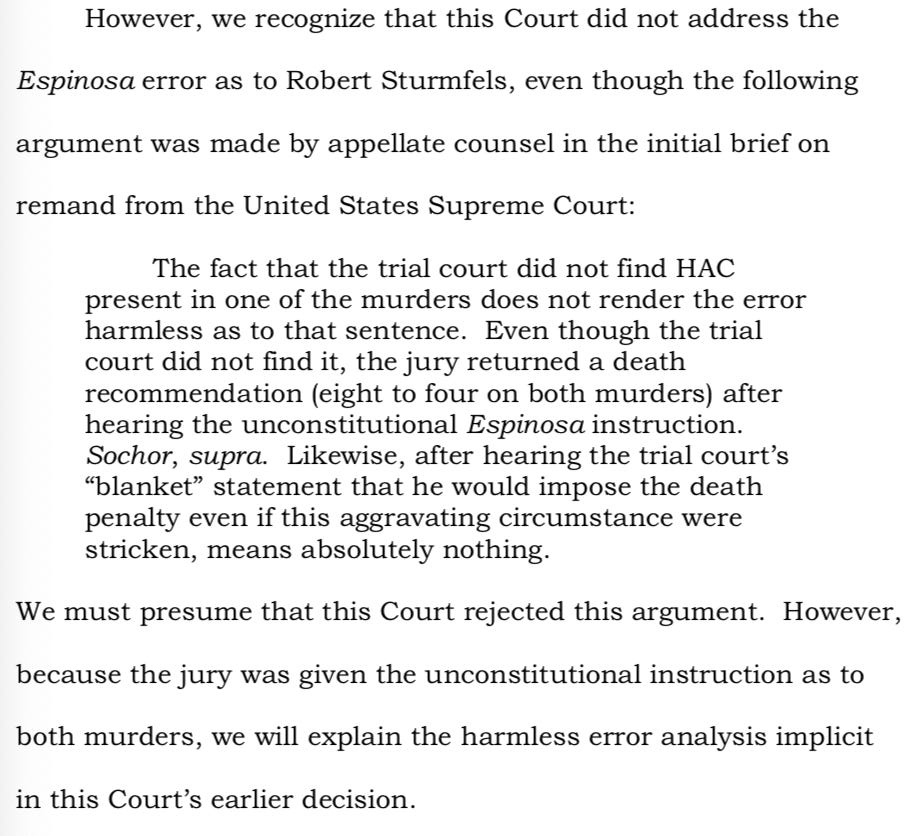
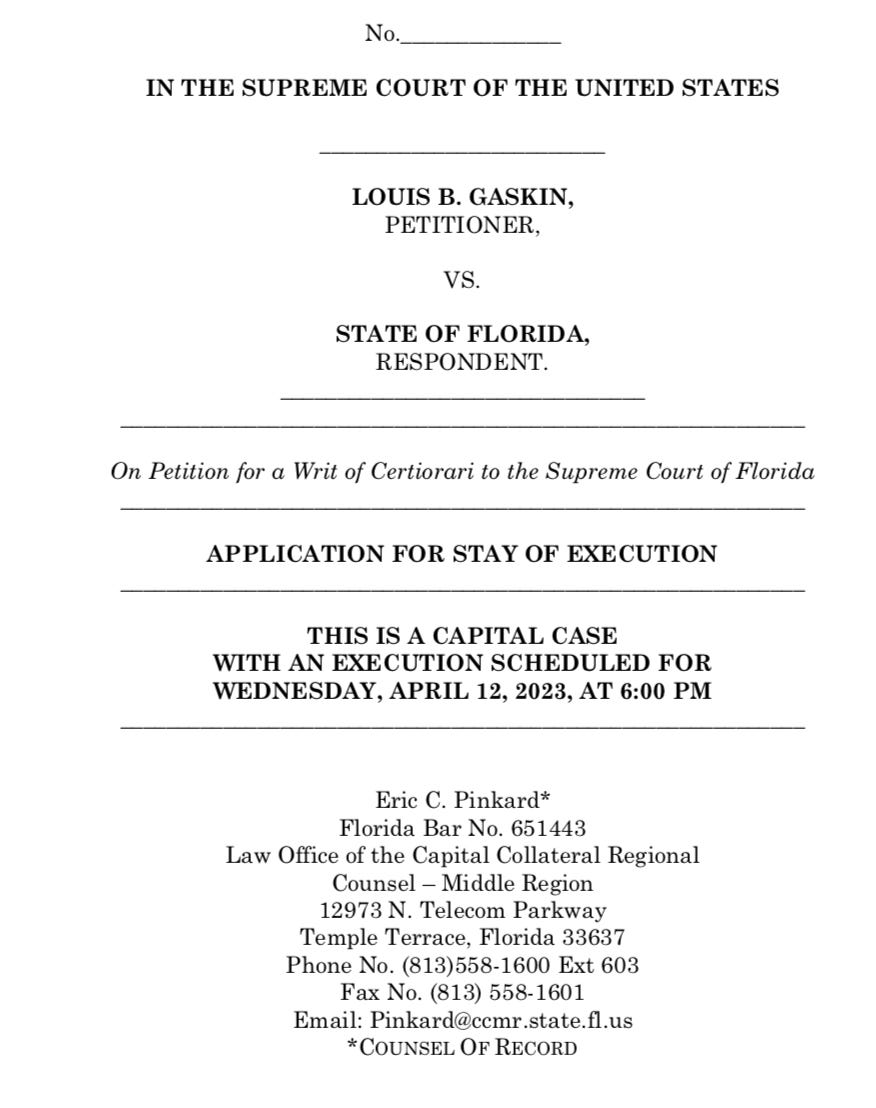
Lawson’s comment is very interesting. Great work.